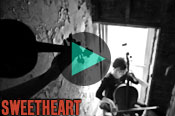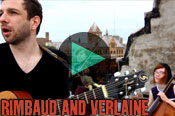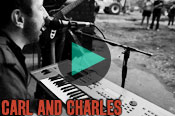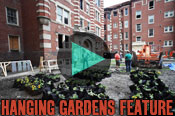A riddle: name two homophones with opposite meanings. In English there are, as far as I know, two common answers. One is hole/whole, which is arguably a bit of a stretch. Hole isn't exactly the opposite of whole, though one does happen to cancel the other out. The other and more accurate answer is raise/raze, a single sound which signifies both to create and to destroy, to build up and to burn down. Resurget cineribus and so on, you see where I'm going with this.
There are a handful of rumors surrounding the razing of the Forest Arms, rumors which could be effectively condensed into this: a man in dire straits, at the end of some sort of rope, sets fire to his own apartment after barricading himself inside, presumably in a desperate act of retribution toward an indifferent world. Another rumor suggests that he was simply a smoker who had fallen asleep amidst some paperwork with a lit cigarette in use. The facts are these: in the early morning of February 6, 2008, a fire started in the apartment of John Christian Robinson. It took four hours to contain, resulted in the death of Robinson, the displacement of over 100 residents, and the near-total destruction of the century-old complex. Also succumbed to the flames: Amsterdam Espresso, a community-driven café which burgeoned into an active local art gallery and music venue in its short time, and People's Records, one of Detroit's premiere record shops which has since relocated to Woodward and Peterboro.
I lived on the first floor of the Forest Arms for a year, between 2006 and 2007. It was my second year living in Detroit and I was knee-deep in my undergraduate studies at Wayne State. The places in which you come of age tend to quickly expand and then slowly contract over time in your memory, one long, labored breath. A lot of my memories from the Forest Arms had been neutralized in the past few years, had sizzled out and congealed. Something I did not expect was for these memories - or perhaps emotional responses attached to these memories which themselves have otherwise been relegated to my subconscious – to be suddenly, if only for a beat or two, jolted back to life.
I make my way from the lobby through the south wing, trying to get my bearings, the once meaty interior having shrunken to a static imprint, a wireframe of dingy timber. I reach my old apartment. It looks considerably smaller without any walls. The bathroom tiles are still visible in gaps between piles of detritus. There is a newly exposed, disused fireplace in the front bedroom, having previously been entombed by layers of plaster. I stood inside the outline on the floor which signified where my bedroom had once stood, trying to think of a joke.
If anything can provide some warmth to such overcast sentiments, it's a diverse group of volunteers spending the day transforming the courtyard into a hanging garden, draping the façade with flowers and ivy while the building resonates with the bittersweet chamber pop of local favorites The Juliets. The task proves to be as much of a celebration as it is work, a labor of love culminating in a roof-top performance by the Juliets for the volunteers.
When the Forest Arms expired it left Midtown with a big blank, a void which the community works with measured pace to replenish. The hanging gardens are a subtle reminder of the life which used to be rooted in that building, and the creative accomplishments made possible by a motivated community. The breadth of the day fills me up – on second thought, the hole/whole answer to that riddle works pretty well here, too.
There are a handful of rumors surrounding the razing of the Forest Arms, rumors which could be effectively condensed into this: a man in dire straits, at the end of some sort of rope, sets fire to his own apartment after barricading himself inside, presumably in a desperate act of retribution toward an indifferent world. Another rumor suggests that he was simply a smoker who had fallen asleep amidst some paperwork with a lit cigarette in use. The facts are these: in the early morning of February 6, 2008, a fire started in the apartment of John Christian Robinson. It took four hours to contain, resulted in the death of Robinson, the displacement of over 100 residents, and the near-total destruction of the century-old complex. Also succumbed to the flames: Amsterdam Espresso, a community-driven café which burgeoned into an active local art gallery and music venue in its short time, and People's Records, one of Detroit's premiere record shops which has since relocated to Woodward and Peterboro.
I lived on the first floor of the Forest Arms for a year, between 2006 and 2007. It was my second year living in Detroit and I was knee-deep in my undergraduate studies at Wayne State. The places in which you come of age tend to quickly expand and then slowly contract over time in your memory, one long, labored breath. A lot of my memories from the Forest Arms had been neutralized in the past few years, had sizzled out and congealed. Something I did not expect was for these memories - or perhaps emotional responses attached to these memories which themselves have otherwise been relegated to my subconscious – to be suddenly, if only for a beat or two, jolted back to life.
I make my way from the lobby through the south wing, trying to get my bearings, the once meaty interior having shrunken to a static imprint, a wireframe of dingy timber. I reach my old apartment. It looks considerably smaller without any walls. The bathroom tiles are still visible in gaps between piles of detritus. There is a newly exposed, disused fireplace in the front bedroom, having previously been entombed by layers of plaster. I stood inside the outline on the floor which signified where my bedroom had once stood, trying to think of a joke.
If anything can provide some warmth to such overcast sentiments, it's a diverse group of volunteers spending the day transforming the courtyard into a hanging garden, draping the façade with flowers and ivy while the building resonates with the bittersweet chamber pop of local favorites The Juliets. The task proves to be as much of a celebration as it is work, a labor of love culminating in a roof-top performance by the Juliets for the volunteers.
When the Forest Arms expired it left Midtown with a big blank, a void which the community works with measured pace to replenish. The hanging gardens are a subtle reminder of the life which used to be rooted in that building, and the creative accomplishments made possible by a motivated community. The breadth of the day fills me up – on second thought, the hole/whole answer to that riddle works pretty well here, too.
4625 Second Ave, Detroit
Built in 1905 under architects Baxter and O'Dell, the four-story Forest Arms Apartments rose in the midst of one of Detroit's most significant population booms, as the first decade of the 20th century would see a near doubling of the city's population to almost a half million residents. The neighborhood around the building - now officially designated "Midtown" - grew quickly as the greater Woodward Corridor flourished during the rise of the auto industry. Distinctive for more than just its façade, its unique U-shaped design created a large grass courtyard that opens up to Second Avenue. Architecturally admired, stable, and always fully occupied, the building was a community hub for over a century. It's proximity to Wayne State University and the College of Creative studies gave the complex an interesting diversity of residents.
On February 6, 2008, a fire broke out in one of the top floor apartments and the building was quickly consumed in flames. Tragically, the tenant of the apartment where the fire originated lost his life, and sadly, 100 residents were displaced and two beloved businesses, People's Records and Amsterdam Coffee, destroyed.
After being open to the elements for two Michigan winters, a local group put together a plan to save the building. Principally, Scott Lowell, urbanist, midtown developer and multi-proprietor, purchased the building and has already begun the first stage of renovation. The redeveloped building is expected to offer more than 70 residential units, ground floor commercial space and will incorporate a number of sustainable features.
A truly collaborative volunteer effort from Team Detroit, Greening of Detroit, UCCA and Scott Lowell, transformed the currently vacant building into Detroit's first vertical garden to beautify the structure and bring life to the building as it awaits renovation.
We were able to document the event while filming a Single Barrel show with the Juliets.
Built in 1905 under architects Baxter and O'Dell, the four-story Forest Arms Apartments rose in the midst of one of Detroit's most significant population booms, as the first decade of the 20th century would see a near doubling of the city's population to almost a half million residents. The neighborhood around the building - now officially designated "Midtown" - grew quickly as the greater Woodward Corridor flourished during the rise of the auto industry. Distinctive for more than just its façade, its unique U-shaped design created a large grass courtyard that opens up to Second Avenue. Architecturally admired, stable, and always fully occupied, the building was a community hub for over a century. It's proximity to Wayne State University and the College of Creative studies gave the complex an interesting diversity of residents.
On February 6, 2008, a fire broke out in one of the top floor apartments and the building was quickly consumed in flames. Tragically, the tenant of the apartment where the fire originated lost his life, and sadly, 100 residents were displaced and two beloved businesses, People's Records and Amsterdam Coffee, destroyed.
After being open to the elements for two Michigan winters, a local group put together a plan to save the building. Principally, Scott Lowell, urbanist, midtown developer and multi-proprietor, purchased the building and has already begun the first stage of renovation. The redeveloped building is expected to offer more than 70 residential units, ground floor commercial space and will incorporate a number of sustainable features.
A truly collaborative volunteer effort from Team Detroit, Greening of Detroit, UCCA and Scott Lowell, transformed the currently vacant building into Detroit's first vertical garden to beautify the structure and bring life to the building as it awaits renovation.
We were able to document the event while filming a Single Barrel show with the Juliets.












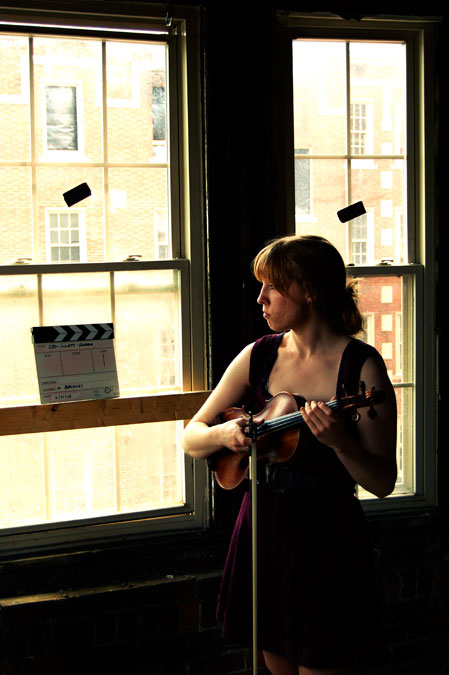

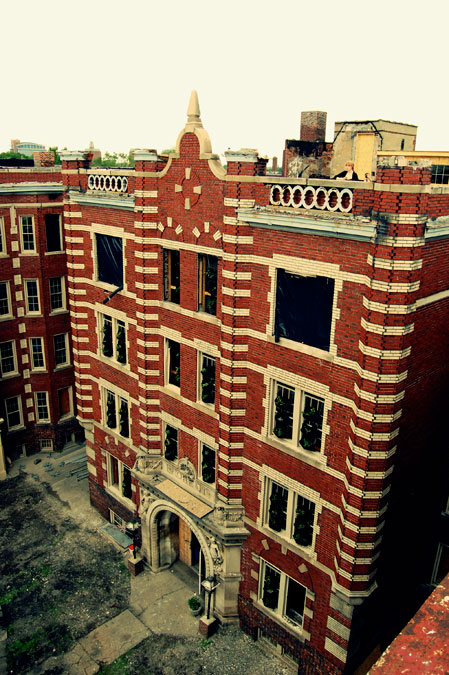
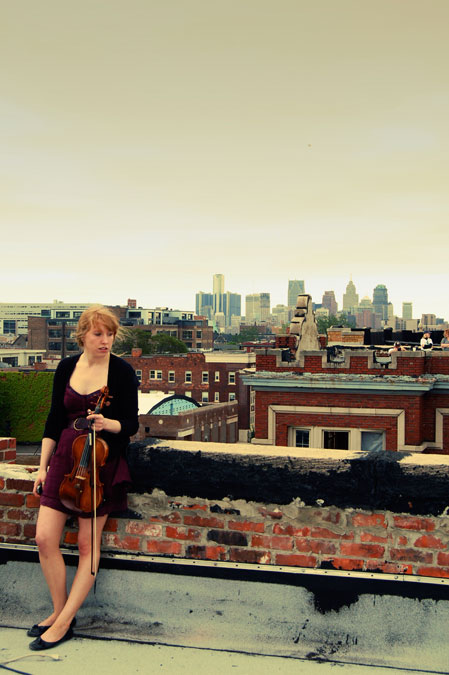
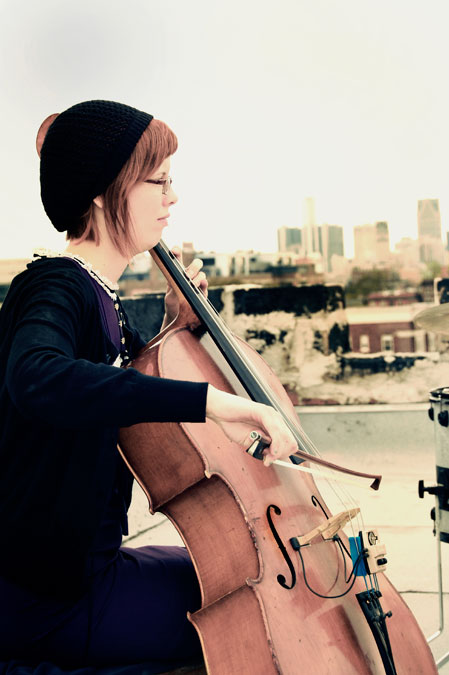
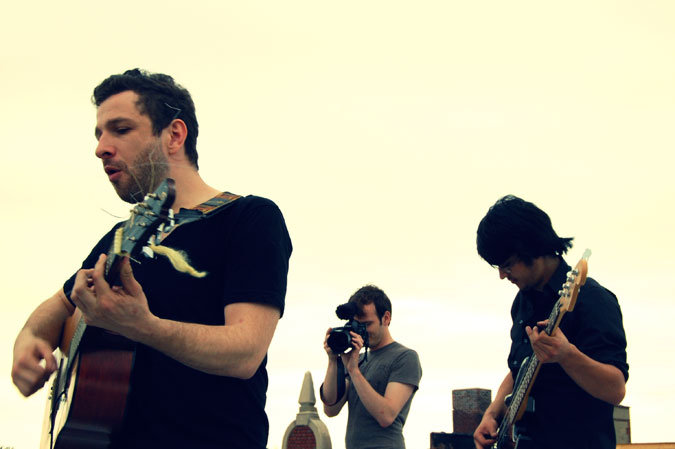
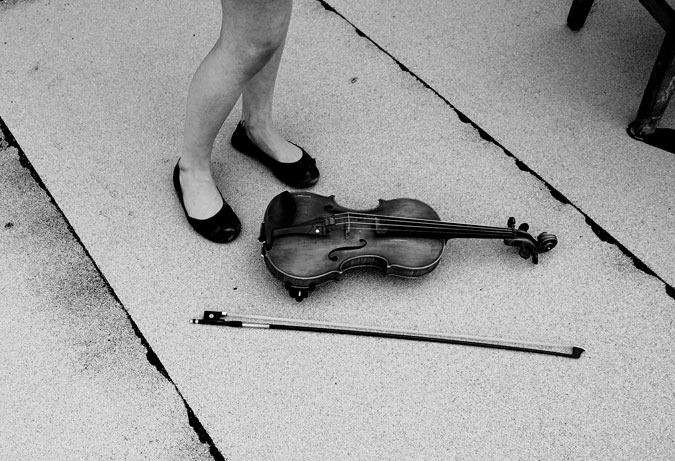
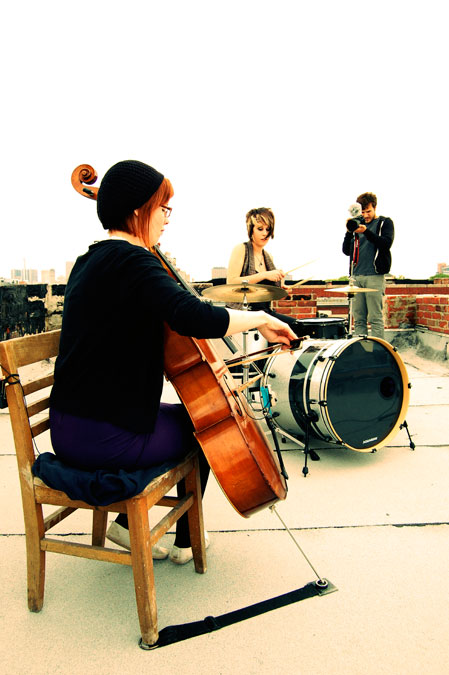
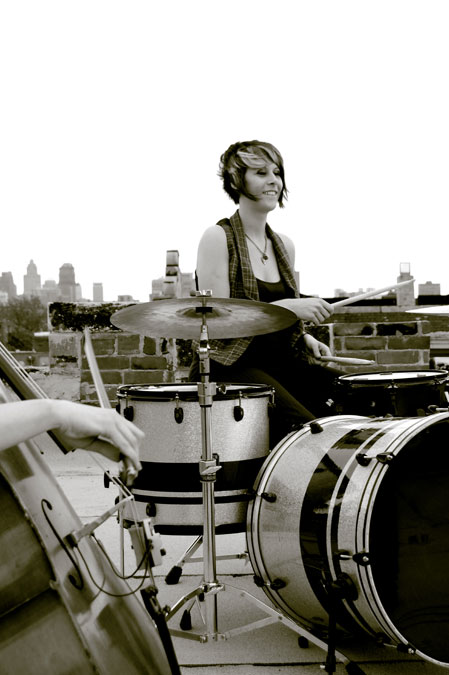
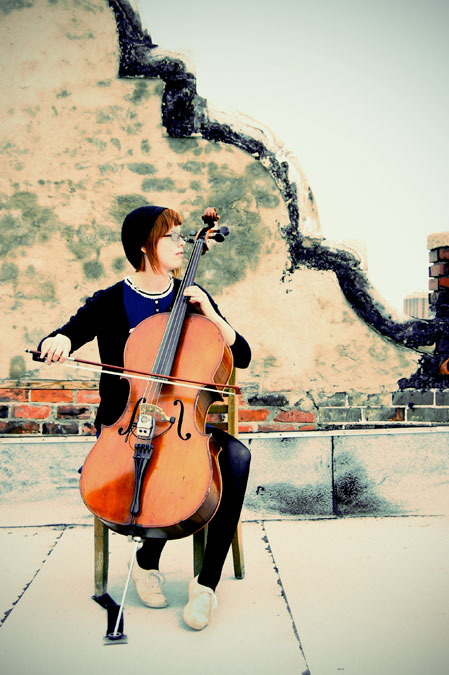
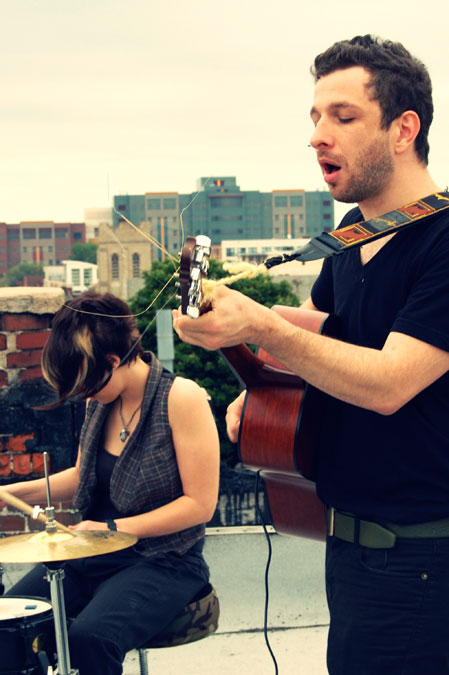
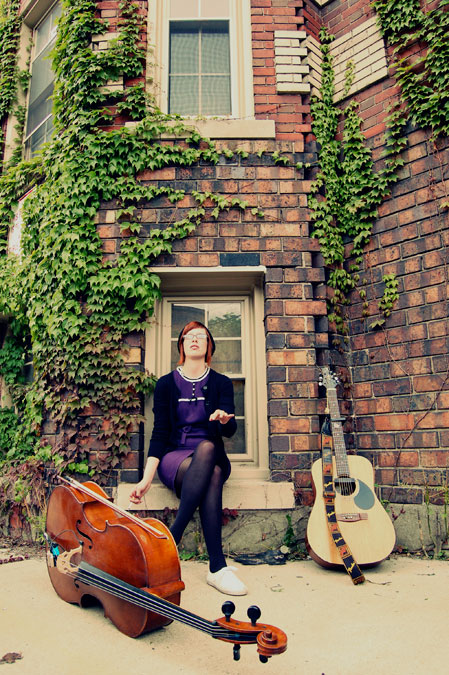
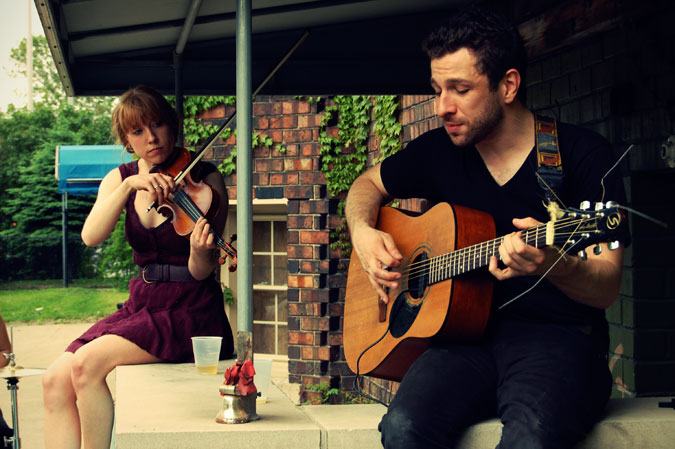
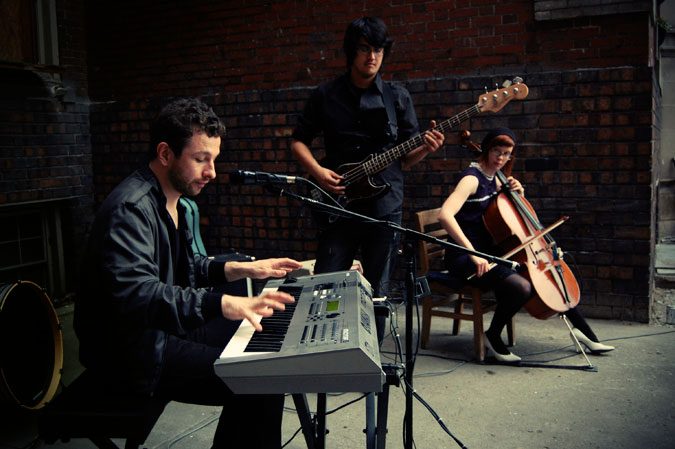
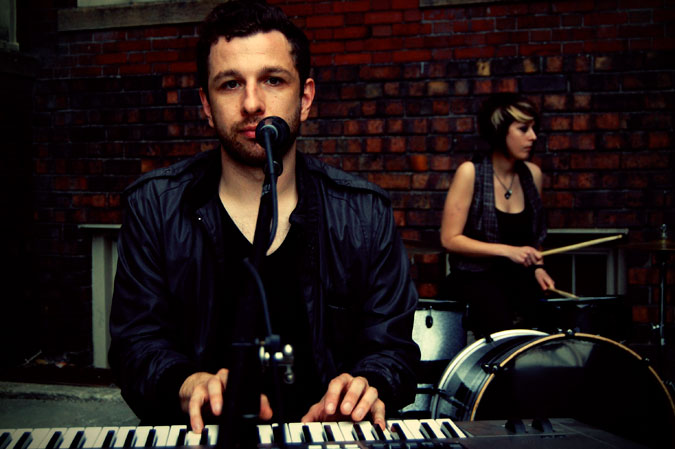
Sweetheart
[Download MP3]
Rimbaud and Verlaine
[Download MP3]
Carl and Charles
[Download MP3]
Like a Parade
[Download MP3]
The Letter
[Download MP3]
[Download MP3]
Rimbaud and Verlaine
[Download MP3]
Carl and Charles
[Download MP3]
Like a Parade
[Download MP3]
The Letter
[Download MP3]
Single Barrel Show:
Sound
Edits/Graphics
Stills
Hanging Gardens Feature:
Second Barrel
PA
Rob Cousineau
Sound
Edits/Graphics
